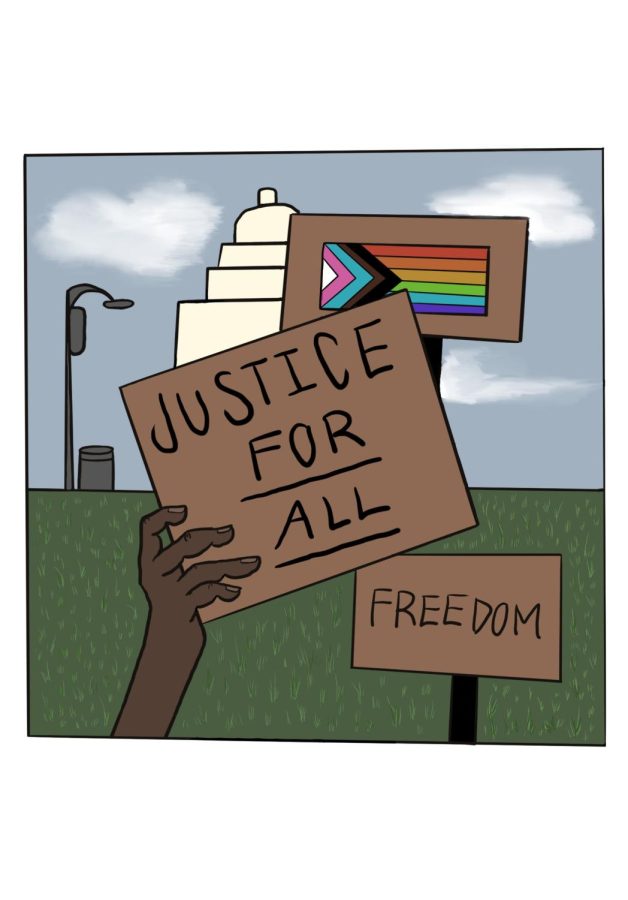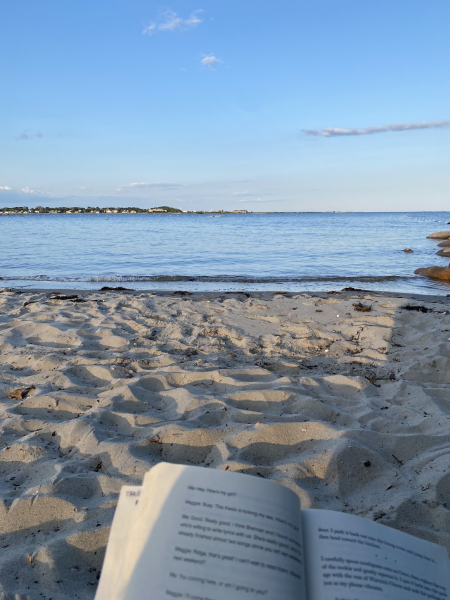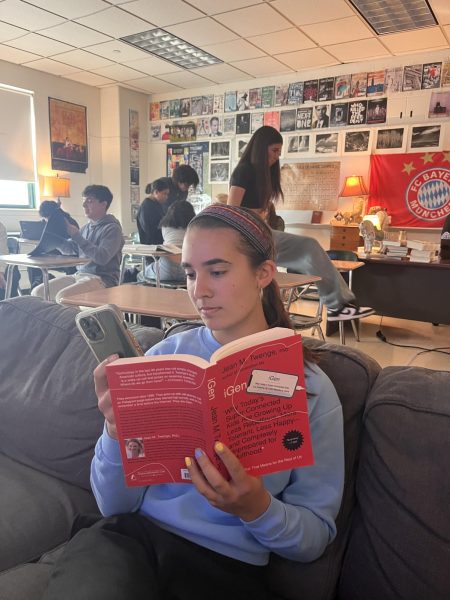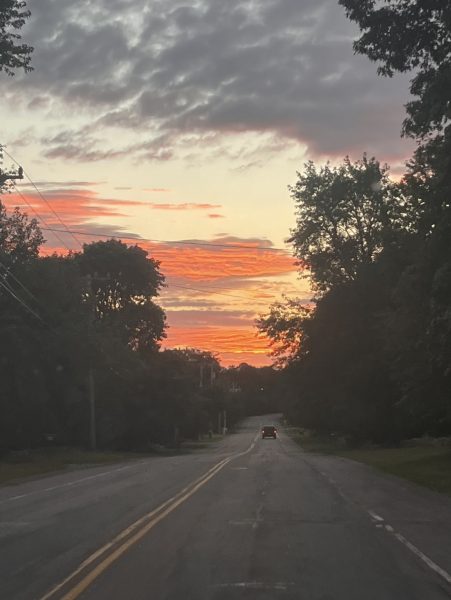The Liberating Effects of Activism
Activism is the solution.
High school is a melting pot of youth, bringing together countless personalities and identities and catalyzing interactions. In this dynamic, high school becomes its own microcosm of the outside world, replicating the structure of society that adults participate in, complete with responsibilities, friends, relationships, stress, and much more. High school takes the most radioactive time period of a person’s life and throws it in a pressure cooker, demanding it to become something that’s productive and useful. This heated battle between oneself and the other factors in the cooker (people, homework, etc) with them forms tender spots: insecurities, imposter syndrome, existential crises, etc. Young souls travel from their home —sticking with the cooking metaphor, the ‘prep’ before the pressure cooker— taking all the emotions from their outside life, whether it be happiness, annoyance, or something stronger like anger, and bring it into the school with them. All this mixing and stirring nevertheless causes a separation of ingredients to form, cliques to form, social disparities to form.
It’s human nature to form groups, to subconsciously drift towards those like you, to magnetically feel pulled to non-controversiality, to choose neutrality. On the scale of high school and friendships it may seem like a harmless thing, but in actuality it will result in some intestinal disruption later in life. By having this type of society form at such a young age, herd mentality becomes second nature, a default to how we choose to interact with others.
In high school there are arguably two distinct categories that people are organized into, the norm, and the other. These categories determine who and what is allowed in cliques, replicating a checklist of requirements. Along with this follows blissful ignorance and blind acceptance, a dynamic of group members being protected in their mindset because others are the same way, and neither wanting to be exposed. This innate trust that is in-fact based on nothing besides the idea of likeness leads to otherwise questionable actions to be glossed over and ignored.
For instance, take political activism, something that has achieved momentum and awareness within the past few years, especially with younger people. In this arena of standing up for your beliefs, those who are active and verbose about what’s right and wrong are labeled (my generation loves labels) ‘excessive’ and ‘over the top’. Teenagers are generalized to not care, to not pay mind to the world around us, and within our own juvenile society, these misconceptions are held against those who aren’t unaware, treated as not in line with the expected behavior.
Again though, this is high school? So why does it matter? Back to the fact that high school is a smaller example of the structure that exists outside the brick walls, no one, especially those that thrive on regularity and the hierarchical structure of high school society, wants to face the noise and disturb the system that serves them well. This may sound familiar, the same dynamic occurs in our government, in businesses, and in the workplace. Ethicality is centered around calling things and people out, naming what is morally and ethically wrong; high school students, kids who are still finding their identity and building their baseline beliefs don’t want to take the risk of becoming vulnerable by leaving their herd of normality to take part in change, an unstable thing at already an unstable age.
This malfunctioning society in high school could manifest itself on a bigger scale once peers become members of larger societies. The influence of these factors and how they interact with each other results in a polarization of those willing to give up the appearance of normality to stand up for what they believe is right and those who choose to stick with the security of being in a group of people who accept their outlook. Due to this, important issues like student elections are ignored, only a conflict of followers and friends and less of an actual election, where each candidate is listened to with interest and concern for the common good of that class’s future. Not only does this impact high school life at the time but it also sets a precedent for how these future community members will act on the scale of the state, country, and even world. By not bringing attention to how these dynamics and stigmas can effect politics and society in a big way, you are essentially allowing a generation of unaware and unbothered future active participants to grow up in a society that accepts the shaming of activism and standing up for what you believe in, of causing to much change, which when in reality, change is necessary for progress to occur, change is worth normalizing.











